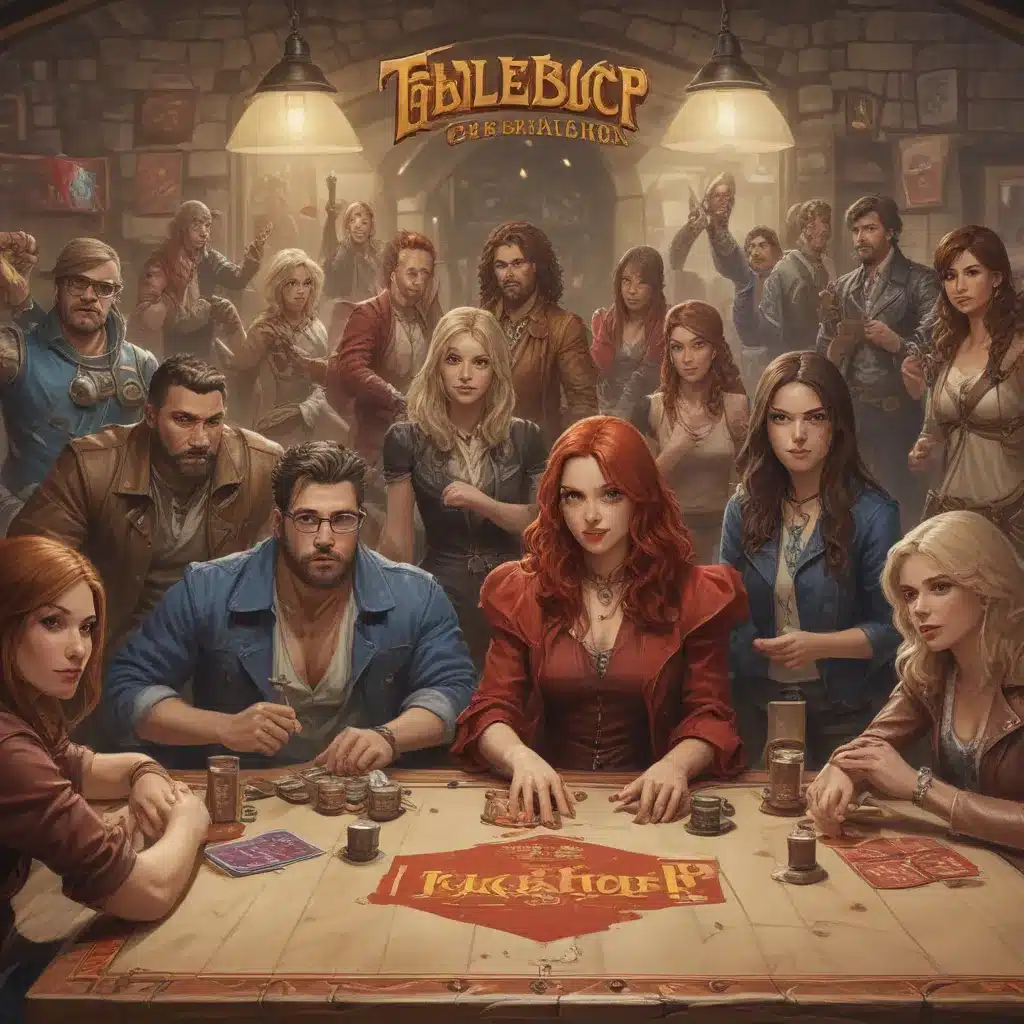The Golden Age of Tabletop Gaming
Remember the classic board games of your childhood? Monopoly, Risk, Clue – those were the staples of any self-respecting family game night. While these iconic titles certainly have their place, a new generation of tabletop enthusiasts is ushering in a golden age of analog gaming. [1] Thanks to the rise of German-style strategy games and a thriving community of designers, publishers, and passionate fans, tabletop gaming is experiencing a remarkable resurgence.
As a computer repair technician, I’ve seen firsthand how technology has transformed the way we engage with entertainment. From the early days of arcade cabinets to the immersive virtual worlds of modern video games, the digital realm has undoubtedly captured the imagination of countless gamers. But something curious has been happening in recent years – a growing number of people, myself included, are rediscovering the joys of getting together around a physical table, rolling dice, and moving tangible game pieces. [2]
The Allure of Analog
What is it about tabletop gaming that’s sparking this newfound enthusiasm? For starters, there’s an undeniable social element that’s often missing from our increasingly screen-centric lives. “It’s a beautiful thing to be able to get people together in the same place, playing the same game,” says D’Juan Irvin, a Game Design instructor I had the pleasure of speaking with. [2] Unlike the solitary experience of firing up a video game, tabletop sessions foster face-to-face interaction, lively discussions, and the opportunity to read each other’s expressions – crucial for games that involve deception, negotiation, and hidden information. [2]
Beyond the social dynamics, many modern tabletop games offer a level of depth and strategic complexity that rivals their digital counterparts. Gone are the days of simply rolling the dice and moving your piece around the board. Today’s game designers are crafting immersive experiences that challenge players to make meaningful choices, weigh their options, and engage their critical thinking skills. [2] “Table top games require a lot more imagination,” explains Kingsley Montgomery, another Game Design expert I consulted. “You have to play a lot of the game through your head.” [2]
The Rise of Innovative Mechanics
What sets these new tabletop games apart is their focus on innovative mechanics that drive the gameplay forward. Rather than relying solely on chance-based elements like dice rolls, many modern titles present players with a series of creative choices that shape the outcome of the game. [2] This shift towards player agency and skill-based progression has helped to address one of the longstanding criticisms of traditional board games: the feeling of being at the mercy of random outcomes.
One game that exemplifies this new design philosophy is Zombicide, which D’Juan Irvin describes as one of his favorites. “It almost feels like the game has an A.I. to it,” he says. “In the first level, you start off fighting tiny, slow zombies. Every time you clear a room, the level of the game increases, and the zombies get faster and harder to kill.” [2] By gradually escalating the challenge and introducing new obstacles, Zombicide ensures that players remain engaged throughout the entire experience, constantly adapting their strategies to the evolving situation.
The Tabletop Renaissance
The resurgence of tabletop gaming can be seen in the thriving community that has sprung up around it. Dedicated game stores, international conventions, and even a documentary film (2012’s “Going Cardboard”) have all contributed to the growing popularity of this analog pastime. [2] And it’s not just enthusiasts who are taking notice – academic institutions like Full Sail University are actively incorporating tabletop game design into their curriculum, recognizing the valuable skills and social benefits it can impart.
As I reflect on the rise of tabletop gaming, I can’t help but feel a sense of nostalgia for the simpler times of my childhood, when a handful of game pieces and a few dice could spark hours of imagination and laughter. But this is more than just a return to the past – it’s the dawn of a new era, one where the timeless pleasures of face-to-face interaction and strategic thinking are being reborn in fresh, innovative ways. [2] So the next time you find yourself craving a respite from the digital onslaught, consider gathering your friends around a table and embarking on a tabletop adventure. You might just discover a whole new world of gaming magic.
References
[1] The Tabletop Renaissance: How Board Games Are Making a Comeback













